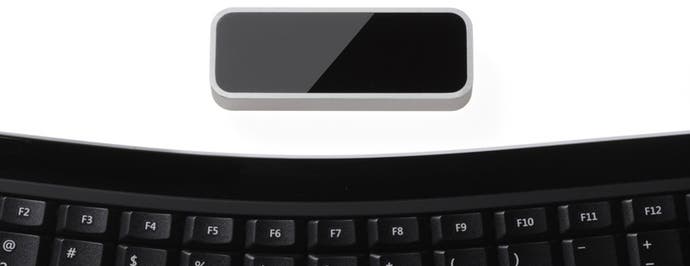Leap: The future of motion control?
"200 times more accurate than anything else on the market."
Upcoming motion control device Leap by Leap Motion is touted by as being "200 times more accurate than anything else on the market." The official site claimed that "Leap can distinguish your individual fingers and track your movements down to a 1/100th of a millimeter."
These are some astounding figures, but how will it be used toward gaming? We spoke to Leap Motion CEO Michael Buckwald to learn more about the upcoming device.
The most obvious comparison to Leap's controllerless interface is Kinect, so asked how it differed from Microsoft's highly publicised accessory.
"[Kinect] isn't particularly good at tracking things like fingers," Buckwald noted. "We're able to track 10 fingers... That let's people do things like mold a virtual piece of clay, or even something basic like pinch to zoom. All of those things are incredibly difficult for something with the accuracy of Kinect."
He noted that Leap has far less latency, and is both cheaper and smaller than Kinect. He estimated that it's about a 20th the size of Kinect, and it will launch for $70 in February.
"The materials for a Kinect is about the same as the actual retail price of our device," he added.
As far as gaming markets go, Buckwald said there are about 23,000 developers across a multitude of industries that have applied to develop for Leap, about 15 per cent of those are aiming to develop games. This comes to 3450. Of that, he estimates half are interested in building games from the ground up, while the others are planning to adapt current titles.
"There are going to be a ton of developers building great mods for all the popular first-person shooters, all the popular RTSs and so forth."
While pre-orders are already available on the official site, we wondered how feasible it would be for Joe public to discover these while bumming about town. Buckwald explained, "We're planning to work with lots of retailers around the world to carry the Leap, so it should be pretty easy to get a hold of it."
"Particularly in the UK," he added.
Buckwald noted that the US had the most pre-orders for Leap, followed by the UK in second and Japan in third.
One stumbling block motion controllers could have with PCs is that they're typically located on desks with smaller screens and little room to maneuver, as opposed to consoles which are generally placed in open living rooms, more suited for conventional gesture controls.
When asked about the potential PC market Buckwald explained, "One of the great things about the Leap is that with our accuracy there's no need to swing your arms around. You can move a cursor across the entire screen just by moving your finger a couple millimeters if that's what you want... you don't have to do one to one."
"So will it come to consoles," we asked?
Buckland replied, "Not necessarily consoles specifically, but the Leap is extremely small already and the actual sensors are extremely small, so from a technical standpoint there's no reason this couldn't be embedded in a smart phone or a tablet, or a console."
"We think that anything that has a computer should eventually have the ability to control with very precise high accuracy movement interactions."
It's worth noting that unlike Kinect, Leap was not designed specifically with gaming in mind and Buckwald aims to revolutionise the way we interact with technology. "Ultimately this technology was created not for casual gaming, but to let people do real things and let them do it in a way that is sporadically better than having to do it with the mouse and keyboard."
He mentioned other uses like developers making 3D representations of Facebook, to design software like Autocad or Maya, to researchers building software to interact with protein structures.
"We don't want to just be different and cool - though we think we are cool - we want to be a fundamentally better way of interacting."

